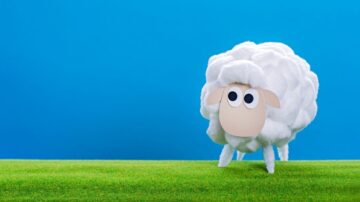Udhiyah refers to the animal (camel, cattle or sheep) offered as a sacrifice, and it as an act of worship dedicated solely to gain Pleasure of Allah. Udhiyah takes place in the country in which the person offering the sacrifice lives, during the period from after the Eid Prayer on the Day of nahr or Eid Al-Adha until the last of the Days of tashreeq (the 13th day of Dhul-Hijjah), with the intention of offering sacrifice. Allah says: [Therefore turn in prayer to your Lord and sacrifice (to Him only).] (Al-Kawthar 108:2)
He also says: [Say (O Muhammad): ‘Verily, my prayer, my sacrifice, my living and my dying are for Allah, the Lord of the Alameen (mankind, jinn and all that exists).] (Al-Anam 6:162)
[And for every nation We have appointed religious ceremonies, that they may mention the Name of Allah over the beast of cattle that He has given them for food. And your God is One God, so you must submit to Him Alone (in Islam)…] (Al-Hajj 22:34)
Udhiyah is a confirmed sunnah (sunnah mu’akkadah) according to the majority of scholars (some scholars say that it is wajib or obligatory; this will be discussed in more detail below).
The basic principle is that it is required at the appointed time from one who is alive on behalf of himself and the members of his household, and he may include in the reward whoever he wishes, living or dead.
Conditions of Udhiyah
- The animal should have reached the required age, which is six months for a lamb, one year for a goat, two years for a cow and five years for a camel.
- It should be free of any faults, because the Prophet (peace and blessing be upon him) said: “There are four that will not do for sacrifice: a one-eyed animal whose defect is obvious, a sick animal whose sickness is obvious, a lame animal whose limp is obvious and an emaciated animal that has no marrow in its bones.” (Sahih Al-Jami`, no. 886). There are milder defects that do not disqualify an animal, but it is makruh to sacrifice such animals, such as an animal with a horn or ear missing, or an animal with slits in its ears, etc. Udhiyah is an act of worship to Allah, and Allah is Good and accepts only that which is good. Whoever honors the rites of Allah, this has to do with the piety of the heart.
- It is forbidden to sell it. If an animal has been selected for sacrifice, it is not permissible to sell it or give it away, except in exchange for one that is better. If an animal gives birth, its offspring should be sacrificed along with it. It is also permissible to ride it if necessary. The evidence for this is the report narrated by al-Bukhari and Muslim from Abu Hurayrah, may Allah be pleased with him, who said that the Messenger of Allah (peace and blessings be upon him) saw a man leading his camel and told him, “Ride it.” He said, “It is for sacrifice.” He said, “Ride it” a second or third time.
- It should be sacrificed at the specified time, which is from after the prayer and khutbah of Eid – not from when the time for the prayer and khutbah starts – until before sunset on the last day of tashreeq, which is the 13th day of Dhul-Hijjah. The Prophet (peace and blessing be upon him) is reported to have said: “Whoever sacrifices before the prayer, let him repeat it.” (Al-Bukhari and Muslim).Ali (may Allah be pleased with him) said: “The days of nahr or sacrifice are the day of al-Adha and the three days following it.” This is also the opinion of Al-Hasan Al-Basri, Ata’ Ibn Abu Rabah, Al-Auzai, Ash-Shafi`i and Ibn Al-Mundhir, may Allah have mercy on them all.

